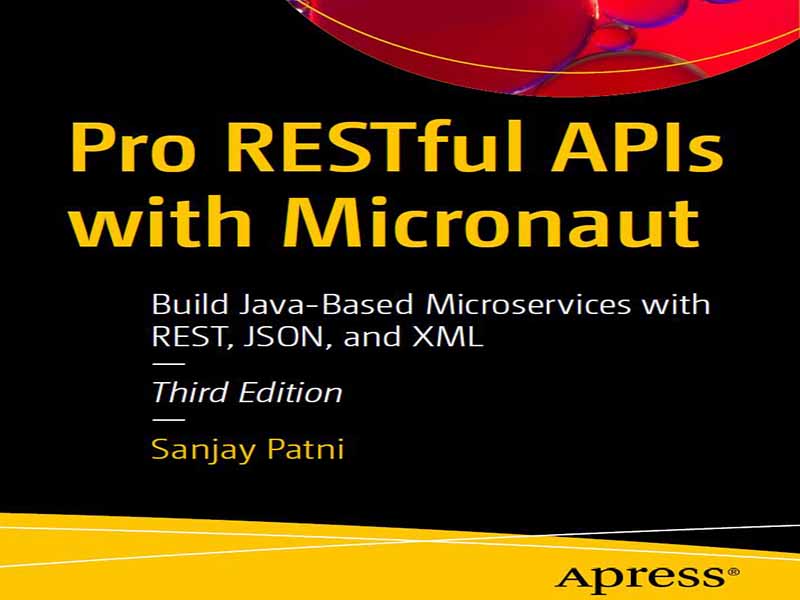- عنوان کتاب: Django with MongoDB -Development with MongoDB Learn how to integrate Django and MongoDB in a practical way
- نویسنده: Oliveira, Walter
- حوزه: آموزش جاوا اسکریپت
- سال انتشار: 2025
- تعداد صفحه: 668
- زبان اصلی: انگلیسی
- نوع فایل: pdf
- حجم فایل: 26.9 مگابایت
در چشمانداز همواره در حال تکامل توسعه وب، Django و MongoDB به عنوان ابزارهای قدرتمندی در ساخت برنامههای مدرن و مقیاسپذیر ظهور کردهاند. Django، یک چارچوب وب سطح بالا برای پایتون، با ارائه یک طراحی تمیز و عملگرا با ویژگیهایی مانند احراز هویت، مدیریت فرم و یک ORM برای مدیریت پایگاههای داده، توسعه برنامههای وب قوی را ساده میکند. از سوی دیگر، MongoDB یک پایگاه داده NoSQL است که انعطافپذیری و مقیاسپذیری را ارائه میدهد و آن را به ویژه برای پروژههایی که نیاز به بازیابی سریع دادهها، مقیاسبندی افقی و حجم زیادی از دادههای بدون ساختار دارند، مناسب میسازد. در حالی که Django به طور سنتی از پایگاههای داده رابطهای مانند PostgreSQL یا MySQL استفاده میکند، ترکیب Django با MongoDB رویکردی نوآورانه برای ساخت برنامههای وب مبتنی بر داده ارائه میدهد. ادغام Django با MongoDB به توسعهدهندگان این امکان را میدهد که از بهترینهای هر دو جهان بهره ببرند. سادگی و قابلیتهای توسعه سریع Django، همراه با توانایی MongoDB در مدیریت مجموعه دادههای بزرگ و ارائه عملکرد در زمان واقعی، امکانات جدیدی را برای ایجاد برنامههای وب بسیار پویا فراهم میکند. این همافزایی بهویژه برای پروژههایی که نیاز به انعطافپذیری در مدلسازی دادهها دارند، مفید است، زیرا ساختار مبتنی بر سند MongoDB به توسعهدهندگان اجازه میدهد تا به راحتی دادههای پیچیده و تودرتو را بدون نگرانی در مورد طرحهای سفت و سخت مدیریت کنند. هدف این فصل ارائه مقدمهای جامع در مورد Django و MongoDB است و پایه و اساس درک چگونگی ادغام مؤثر آنها برای حل چالشهای توسعه در دنیای واقعی را بنا میکند. با افزایش تقاضا برای برنامههای سریعتر و مقیاسپذیرتر، درک چگونگی ترکیب این فناوریها به طور فزایندهای مهم میشود. در حالی که Django در ارائه یک چارچوب قوی برای توسعه وب برتری دارد، MongoDB توانایی مقیاسبندی و مدیریت کارآمد مقادیر زیادی از دادهها را ارائه میدهد. با استفاده از MongoDB با Django، توسعهدهندگان میتوانند برنامههایی بسازند که نه تنها به صورت افقی مقیاسپذیر باشند، بلکه امکان ذخیرهسازی و بازیابی انعطافپذیر دادهها را نیز فراهم میکنند و کار با مجموعه دادههای متنوع و دائماً در حال تغییر را آسانتر میکنند. این امر به ویژه در توسعه وب مدرن اهمیت دارد، جایی که تغییرات سریع در دادهها و نیاز به مقیاسپذیری اغلب به یک سیستم پایگاه داده نیاز دارد که بتواند به سرعت سازگار شود. ادغام Django با MongoDB همچنین یک راه حل جذاب برای برنامههایی است که با دادههای بدون ساختار سروکار دارند، مانند سیستمهای مدیریت محتوا، پلتفرمهای تحلیلی بلادرنگ یا برنامههای رسانههای اجتماعی. این نوع سیستمها اغلب به پایگاه دادهای نیاز دارند که بتواند انواع مختلفی از اطلاعات را بدون محدودیتهای مدلهای رابطهای سنتی ذخیره کند. طراحی بدون طرحواره MongoDB امکان بهروزرسانیها و تغییرات آسان در ساختارهای داده را با تکامل برنامه فراهم میکند. علاوه بر این، این ادغام مزایای عملکردی قابل توجهی را ارائه میدهد، به خصوص هنگام برخورد با حجم زیادی از دادهها یا برنامههای پرترافیک.
In the ever-evolving landscape of web development, Django and MongoDB have emerged as powerful tools in building modern, scalable applications. Django, a high-level Python web framework, simplifies the development of robust web applications by providing a clean, pragmatic design with features like authentication, form handling, and an ORM for managing databases. MongoDB, on the other hand, is a NoSQL database that offers flexibility and scalability, making it particularly well-suited for projects requiring quick data retrieval, horizontal scaling, and large volumes of unstructured data. While Django traditionally uses relational databases like PostgreSQL or MySQL, the combination of Django with MongoDB offers an innovative approach to building data-driven web applications. The integration of Django with MongoDB allows developers to leverage the best of both worlds. Django’s simplicity and rapid development capabilities, paired with MongoDB’s ability to handle large datasets and provide real-time performance, open up new possibilities for creating highly dynamic web applications. This synergy is particularly beneficial for projects that demand flexibility in data modeling, as MongoDB’s document-based structure allows developers to easily manage complex, nested data without worrying about rigid schemas. This chapter aims to provide a comprehensive introduction to both Django and MongoDB, laying the foundation for understanding how they can be effectively integrated to solve real-world development challenges. As the demand for faster and more scalable applications continues to rise, understanding how to combine these technologies becomes increasingly important. While Django excels at providing a robust framework for web development, MongoDB offers the ability to scale and handle large amounts of data efficiently. By using MongoDB with Django, developers can build applications that not only scale horizontally but also allow for flexible data storage and retrieval, making it easier to work with diverse and ever-changing datasets. This is especially important in modern web development, where rapid changes in data and the need for scalability often require a database system that can adapt quickly. Integrating Django with MongoDB is also an attractive solution for applications that deal with unstructured data, such as content management systems, real-time analytics platforms, or social media applications. These types of systems often require a database that can store diverse types of information without the constraints of traditional relational models. MongoDB’s schema-less design allows for easy updates and changes to data structures as the application evolves. Additionally, the integration provides significant performance benefits, particularly when dealing with large volumes of data or high traffic applications.
این کتاب را میتوانید از لینک زیر بصورت رایگان دانلود کنید:
Download: Django with MongoDB




































نظرات کاربران